Take A Knee: Aspiring NFL players on Colin Kaepernick’s protests
- Published
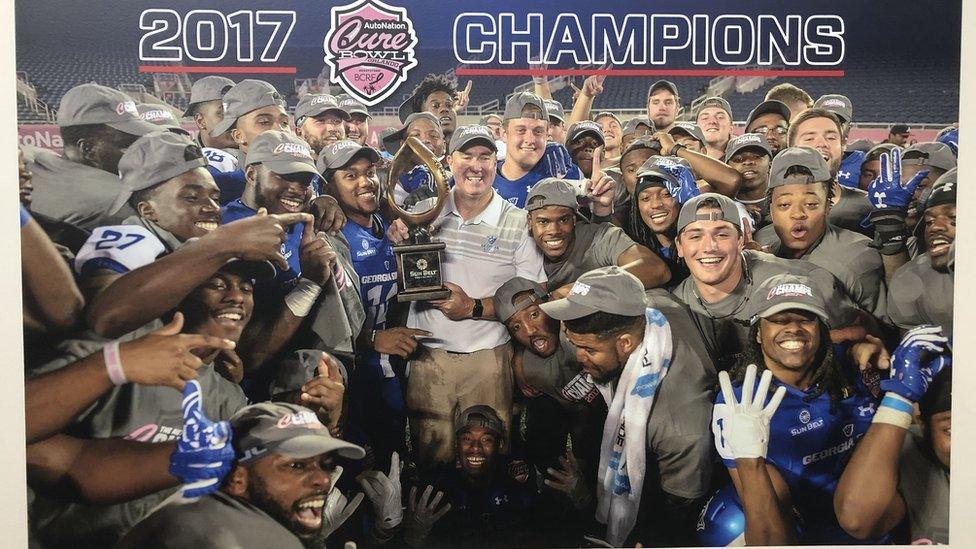
The Panthers celebrate, with player Devin Gentry in the centre, holding the trophy
In August 2016, during a pre-season game in the American NFL, a storm started.
Colin Kaepernick, at the time a player for the San Francisco 49ers, sat down as the American national anthem played.
When it was noticed, the then 28-year-old explained that he was doing it to "stand with the oppressed".
"This stand wasn't for me. This is because I'm seeing things happen to people that don't have a voice, people that don't have a platform to talk and have their voices heard, and effect change. So I'm in the position where I can do that and I'm going to do that for people that can't."
He inspired protests by other players in teams across the country, courted anger from those who disagreed, and led the NFL to suggest fines would be given to teams whose players knelt during the anthem.
But nearly two-and-a-half years later - Colin Kaepernick is without a team.
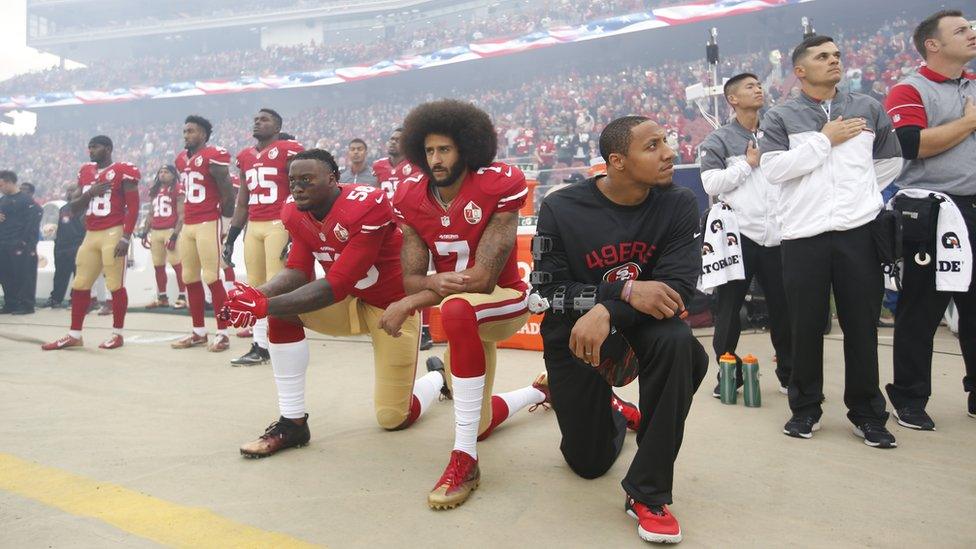
Eli Harold, Colin Kaepernick and Eric Reid kneel during the American national anthem before a San Francisco 49ers v New York Jets game in December 2016
Radio 1 Newsbeat wanted to find out what effect, if any, the protests have had on aspiring NFL players.
In the week leading up to the Super Bowl, we spent time with college players at Georgia State University and as they trained. This is an edited transcript of what they said.
Newsbeat: You've been training since 7am. Up since even earlier. It's -4C. Why?
Remy Lazarus, 21: The reason we do that every single day is just love of the game - that's as simple as I can put it.
It's become second nature, 7am is whatever to me now. I just love football.
Ed Curny, 23: I've been playing this game since I was five years old. It changed my life. It made me into a man. When I came here I was a little boy.
I love it with all my heart. I'm in a great programme, I get to do this thing every day with my brothers. They help me every day, I'm hurting and I'm tired - the same as everybody - but those guys pick me up.
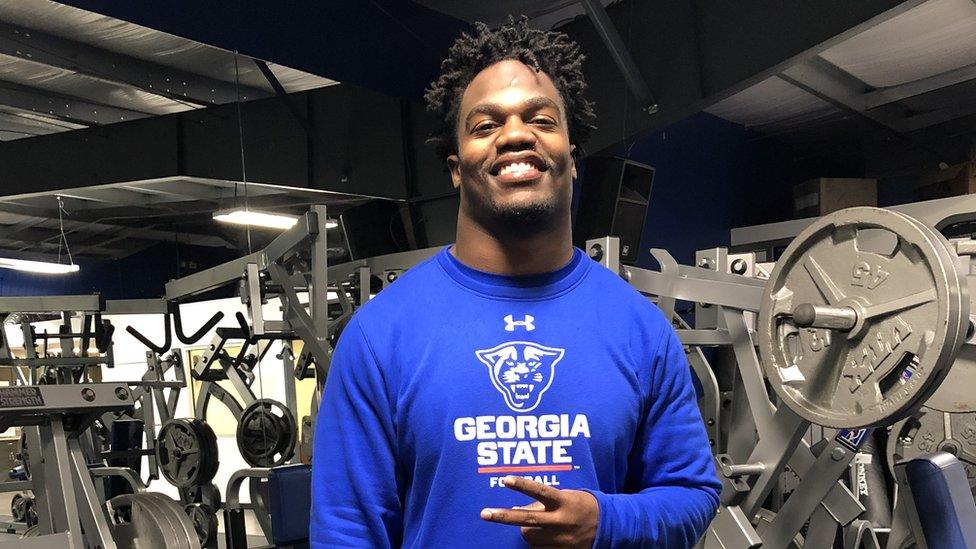
Ed Curny of the Georgia State Panthers
Remy: The brotherhood and bond that you see is naturally developed. You view it like this - somebody is going through hell the same way I'm going through, they've got to be mentally strong like me. It just brings us together naturally.
Ed: I'd give my life to play this game.
Newsbeat: Did the Colin Kaepnerick protests change anything about how you look at football?
Remy: Colin Kaepernick, what he did, I don't know if I would be brave enough to do that - to give up my career for a cause greater than myself.
I would like to say I would but it was presented to him so he did it first - he's a pioneer.
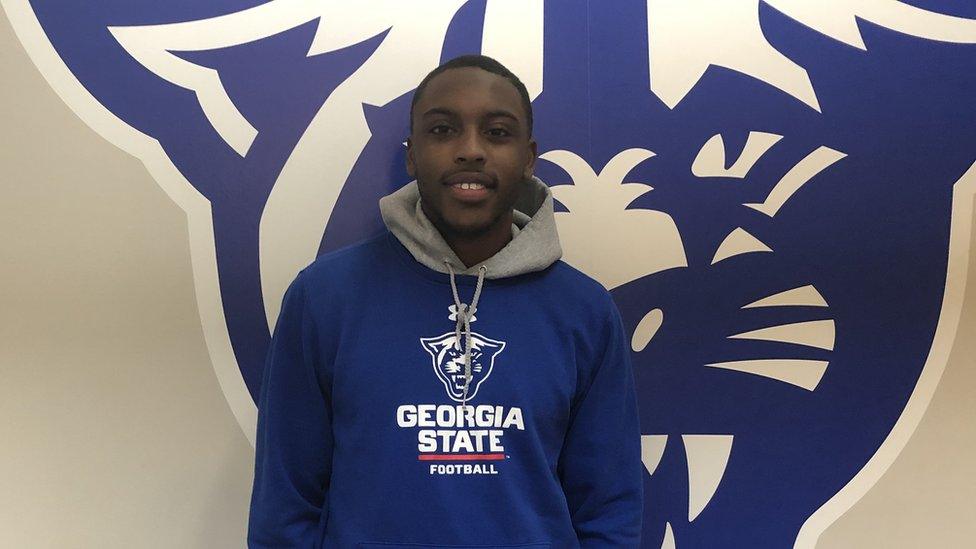
Remy Lazarus of the Georgia State Panthers
Ed: Being African-American, it's harder.
Making a decision to protest during the national anthem - the national anthem is like a prayer in America - it's so important. And for you to say, 'I'm focusing this on me and what I believe in', instead of putting the country first and the people who built this country first? It's hard man, it's hard.
But what Colin Kaepernick did, I think it's good for the players and it's good for the African American culture also.
Remy: The Take A Knee protest is a big deal to me. I think it's needed, I think it highlights a very big problem in America, which is injustice towards minorities - specifically black people.
I don't think it changes my opinion on football at all, I love the game - the game itself is not where the injustice comes, it's the people running the game, it's the people at the top of the pyramid.
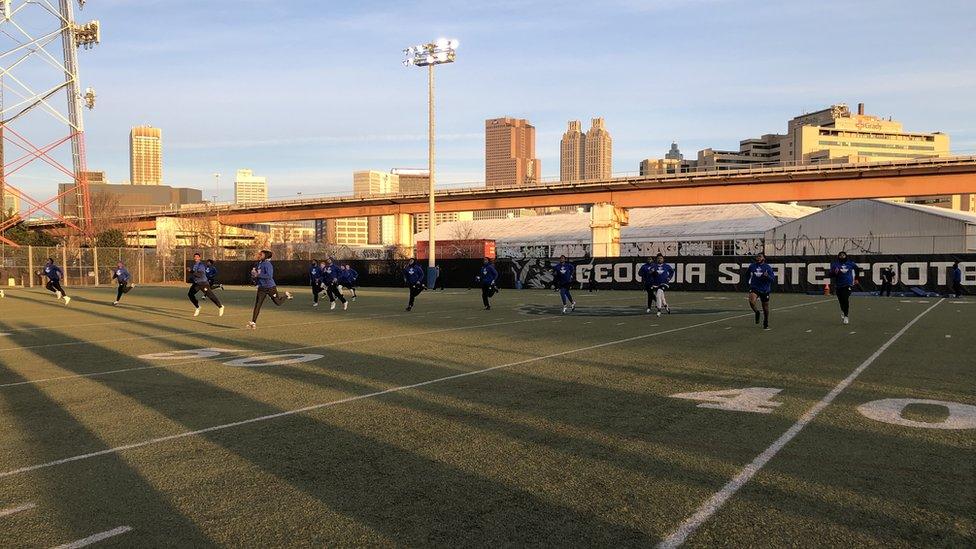
The Georgia State Panthers in training
Devin Gentry, 21: Sacrifices have been made by players to open up avenues for guys like me.
Remy: I feel like it's needed, somebody had to do it and it had to be him.
Ed: It's a thing where you love it, but the other thing is you've got to respect the guys who go out every day and fight for us.
I feel like it's a good thing at certain moments - but at the end of the day you've still got to respect those guys who risk their lives for us every day.
Remy: It highlighted a big point so, what you see players doing now, going into the communities, speaking with forces - the police, the firemen - people of that nature, going into the community trying to help, it's what we need.
Somebody had to shine a light on it.
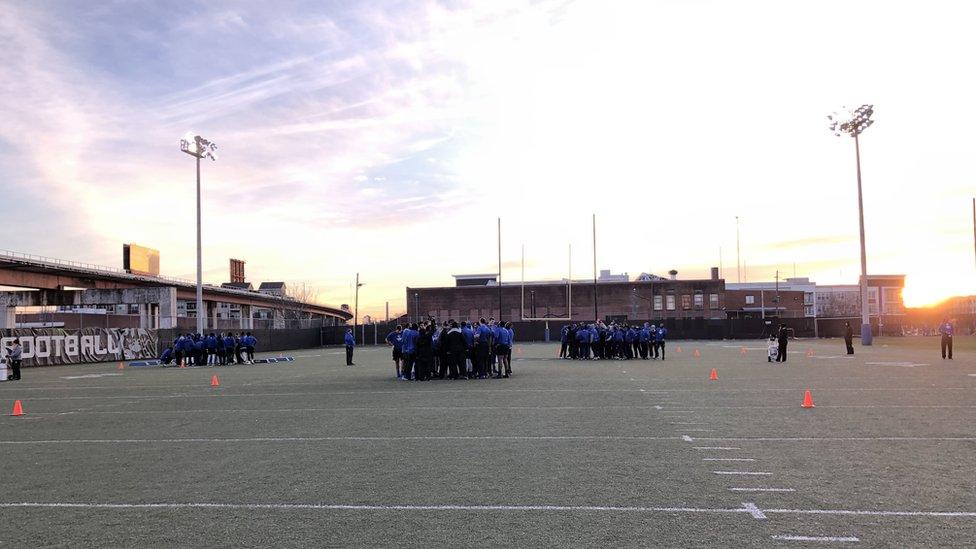
The Georgia State Panthers start training at 7am
Ed: I definitely love what Colin Kaepernick did because he was the first person to ever take a stand and being an African-American in this country, that's powerful.
Hats off to Colin Kaepernick - I love that about him and I love all the other players that stood behind him and rock with him.
Follow Newsbeat on Instagram, external, Facebook, external and Twitter, external.
Listen to Newsbeat live at 12:45 and 17:45 every weekday on BBC Radio 1 and 1Xtra - if you miss us you can listen back here.